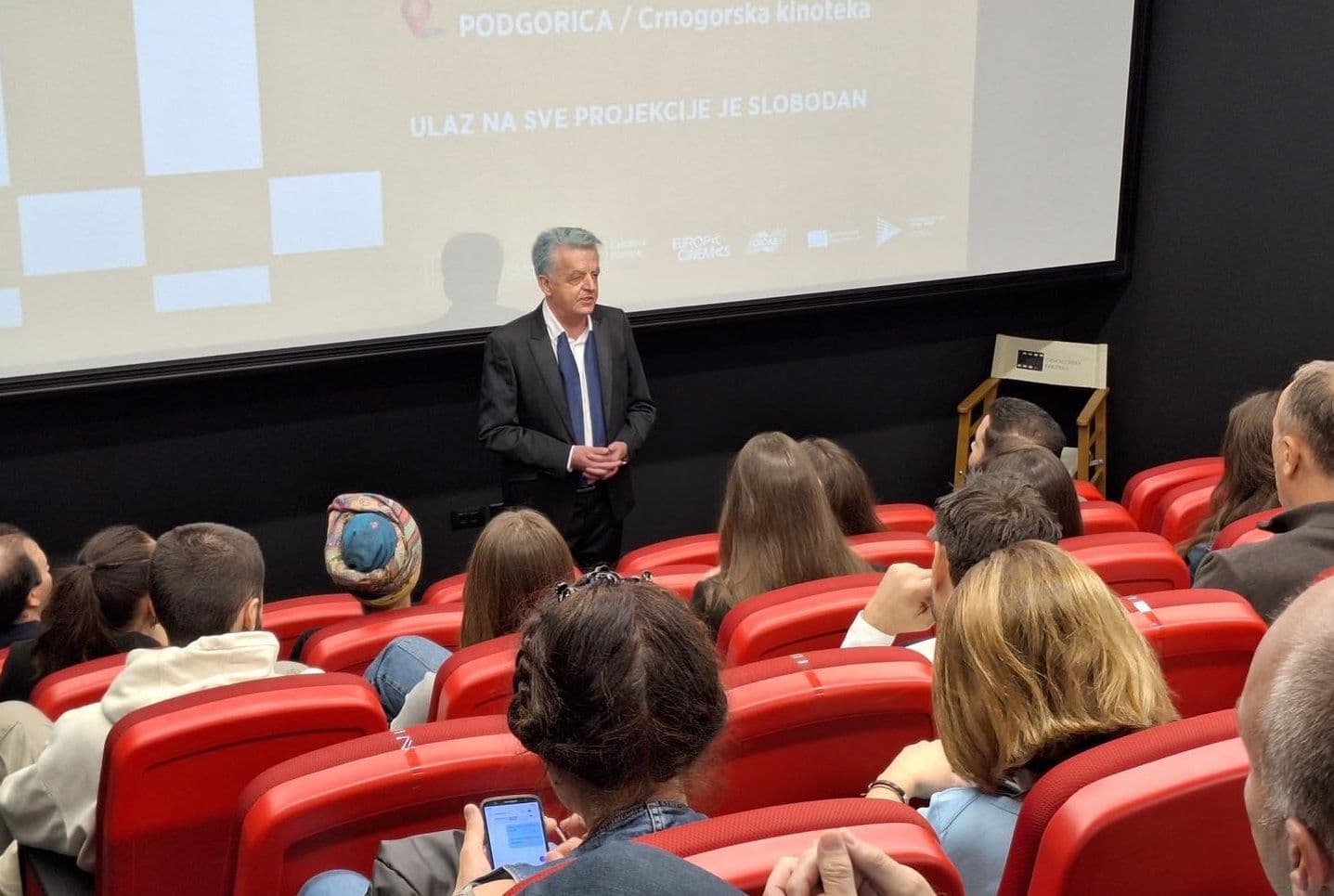Top Stories
Investigation Delayed: Montenegrin National Film Archive Under Scrutiny

Documents from the State Audit Institution concerning controversial contracts at the Montenegrin National Film Archive have been with the prosecution for months, yet no action has been taken. Despite identifying potential systemic abuses, unauthorized payments, and missing critical documentation, relevant authorities remain surprisingly inactive. As of now, the Supreme State Prosecution has forwarded the case to the Special State Prosecution, but it has not provided any updates on whether an investigation has begun or if any evidence has been collected.
The public remains in the dark about the fate of 17,850 EUR paid out under contracts where execution remains unproven. The archive reportedly claims that key contracts are missing from its records, raising serious questions about financial transparency and accountability. Audit findings indicate a troubling pattern of handling public funds without oversight, yet there has been silence from institutions at all levels.
In April 2025, the State Audit Institution alerted the Supreme State Prosecution regarding serious irregularities in the operations of the Montenegrin National Film Archive during 2023. The audit revealed a high risk that money was disbursed to employees under supplemental contracts without any evidence of work performed, contravening established regulations.
Among the most contentious agreements are those made by former director Goran Bjelanović with employees, including contracts with Nataša Kovač-Martinović, who currently serves as the Minister of Labour and Social Welfare. The audit highlighted contracts that were either missing from the archive or lacked proper documentation confirming that work was completed. Payments amounting to 17,850 EUR were made without the necessary proof of services rendered, raising further alarms about the integrity of financial processes within the institution.
Despite inquiries from various media, the Supreme State Prosecution has not offered clarity on the status of the case or any potential actions taken. This lack of transparency is concerning, especially as the Special State Prosecution has not responded to questions about whether it has opened an investigation or gathered any evidence.
In response to the audit’s findings, Tamara Vujović, the Minister of Culture and Media, claimed that the Ministry had discovered irregularities and had taken measures. However, documents obtained through freedom of information requests reveal that while some shortcomings were noted, no specific sanctions were imposed to prevent the continuation of such practices. The audit indicated that the institution’s council did not hold regular meetings and that the appointment of Nataša Kovač-Martinović to the council did not adhere to procedural guidelines.
Despite these findings, the Ministry’s actions have been limited to formal notices requiring corrections, with no significant leadership changes or consequences for ongoing financial discrepancies.
In June 2024, Bjelanović was dismissed from his position, but this occurred 13 months after the audit and ten months prior to the report’s publication. His removal did not directly relate to the audit findings. Instead, it was justified on the grounds of failing to submit a timely work program for the archive, leaving unaddressed the serious issues outlined in the audit.
The case of the Montenegrin National Film Archive illustrates a chronic problem: institutions operate selectively and sluggishly, often only adhering to formalities. While auditors have pointed out potential abuses, and the Ministry acknowledged irregularities, concrete measures to hold individuals accountable remain absent. The prosecution has received the case but has not publicly communicated any updates regarding its status.
The lack of response from authorities, combined with missing contracts and unauthorized payments, highlights a failure in control mechanisms that should prevent such practices. As the Special State Prosecution remains silent, the public is left questioning whether an investigation will be initiated that could clarify how citizens’ funds have been mismanaged.
Current director Pavle Simonović illustrates the institution’s state, caught between promises of transparency and a refusal to provide legally mandated documentation. Appointed in June 2024, Simonović faced a freedom of information request shortly after taking office. Despite a resolution from the Agency for Personal Data Protection and Free Access to Information requiring him to provide requested contracts, he has failed to comply.
Instead, when confronted about the ongoing lack of response, Simonović indicated that a solution would be forthcoming, deflecting responsibility to the previous administration. This logic is misguided; a new director assumes responsibility for all official documents, regardless of their origin.
Furthermore, Simonović has not provided answers to inquiries about controversial supplemental contracts, insisting that questions regarding the prior administration should be directed to former director Bjelanović. Such reasoning is not only incorrect but absurd, as the institution is not managed remotely and the current director must ensure transparency and accountability for all documents.
When Pobjeda submitted another freedom of information request in May 2024 for bank statements related to the disputed payments, Simonović again did not respond, prompting a complaint to the Agency for Personal Data Protection.
In previous communications, he attempted to excuse his inaction by referencing the internal and DRI audits, suggesting that these reviews absolve him of his obligations. In reality, the existence of these audits only heightens his responsibility to be transparent.
Ultimately, despite promises to comply with information requests and open access to documents, Simonović’s actions suggest otherwise. His persistent silence and avoidance of legal obligations raise serious concerns about whether the current administration, like its predecessor, utilizes silence and noncompliance as a management strategy rather than addressing the underlying issues. As the public seeks answers, Simonović continues to evade accountability, highlighting a systemic failure in governance at the Montenegrin National Film Archive.
-

 Entertainment3 months ago
Entertainment3 months agoAnn Ming Reflects on ITV’s ‘I Fought the Law’ Drama
-

 Entertainment4 months ago
Entertainment4 months agoKate Garraway Sells £2 Million Home Amid Financial Struggles
-

 Health3 months ago
Health3 months agoKatie Price Faces New Health Concerns After Cancer Symptoms Resurface
-

 Entertainment3 weeks ago
Entertainment3 weeks agoCoronation Street Fans React as Todd Faces Heartbreaking Choice
-

 Entertainment3 months ago
Entertainment3 months agoCoronation Street’s Carl Webster Faces Trouble with New Affairs
-

 World3 days ago
World3 days agoKevin Sinfield Exceeds Fundraising Goal Ahead of Final Marathons
-

 Entertainment3 days ago
Entertainment3 days agoTwo Stars Evicted from I’m A Celebrity Just Days Before Finale
-

 World3 weeks ago
World3 weeks agoBailey Announces Heartbreaking Split from Rebecca After Reunion
-

 Entertainment3 months ago
Entertainment3 months agoWhere is Tinder Swindler Simon Leviev? Latest Updates Revealed
-

 Entertainment4 months ago
Entertainment4 months agoMarkiplier Addresses AI Controversy During Livestream Response
-

 Science2 months ago
Science2 months agoBrian Cox Addresses Claims of Alien Probe in 3I/ATLAS Discovery
-

 Health5 months ago
Health5 months agoCarol Vorderman Reflects on Health Scare and Family Support











